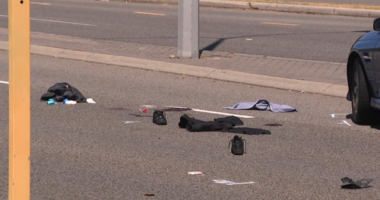Share this @internewscast.com
Kate moved out of the home – initially for six months to recuperate after surgeries and cancer treatments – but the family never lived together again.
“[I was] very unlikely to come out of breast cancer treatment, and not have chronic, ongoing health concerns”.

Katherine and Damian said that splitting their assets was easy due to having so much trust in each other. Source: Supplied
‘What little we had, was both of ours’
“We were partners … what little we had when we were younger, was both of ours.”
‘No hard and fast rule’
“There’s no hard and fast rule of the 50:50 at all,” Orman, who specialises in family law and estate planning, says. “The court take into account initial contributions of both of the parties and what they’ve brought in.”
“But in the end, the court are wanting a settlement to be fair, just and equitable,” Orman says.
Safeguarding assets
“It gives a clear intention of what the separation [is] going to be at the [hypothetical] end of the relationship.”
“And I can stipulate who I want it to go to explicitly.”
The ongoing costs
“I think it’s just basically sitting down and talking it through and working out what was the right thing to do … to make each other’s lives easier.”

Katherine and Damian split their assets equally and maintain a strong friendship after their divorce. Source: Supplied
The division of assets is something that still plays on Kate’s mind. She still has ongoing medical expenses, despite being in remission for five years.











